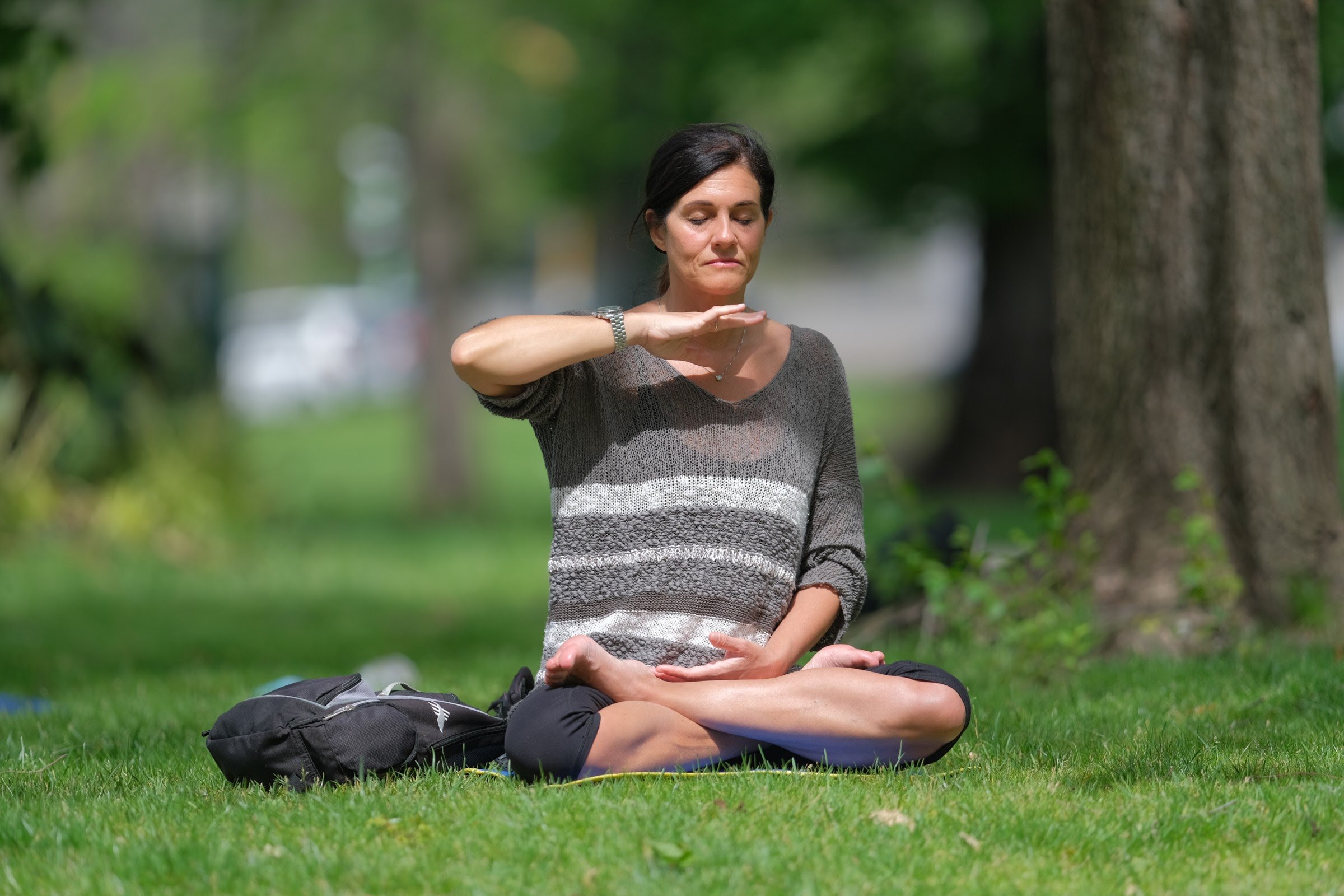What’s The Difference Between Mindfulness And Meditation?
On the surface, mindfulness and meditation are interrelated but at a deeper level, each has its own distinction. In fact, a study from Michigan State University in the United States has found that meditation can improve emotional health regardless of a person’s “natural ability” to being mindful.
Here are some thoughts on this:
What is Mindfulness?
Mindfulness is a state of being, such that we are mindful of our speech, conduct, and actions. For example, to be concerned if our actions might potentially hurt or harm someone, and to be aware of our surroundings.
Being at peace with our surroundings (Credit: Unsplash.com)
In some ways, “cultivation of the mind” is part of the teachings of Falun Dafa. What is cultivation you might ask? As a practitioner of Falun Dafa, I believe that cultivation is a process of continually improving oneself so that one can attain spiritual perfection. In doing so, we assimilate to the universe's characteristics, Zhen, Shan, Ren (Truthfulness, Compassion, and Forbearance). We thus strive to be the best selves we can and cultivate our heart, mind, and body. Read What do Falun Gong (Falun Dafa) practitioners believe?
So how do we cultivate the heart and mind? We focus on our Xinxing (heart and mind nature/moral character) when going about our day in life, we practise compassion, we do our best to be mindful of our speech, and we practise restraint while always looking within for any shortcomings. Hence, we improve ourselves from the inside out.
Then how do we cultivate the body? Through the five sets of meditation exercises. We strengthen, purify our bodies, open our energy channels and enrich our minds. As a result, we improve holistically.
What is Meditation?
Meditation is usually an activity we perform where train our brains to attain attention and awareness, and to also achieve an emotionally calm and stable state.
In the effort to balance the mind and body, meditation also requires mindfulness so that we can find peace within ourselves. For instance, when one lets go of selfish desires and always considers others first, one often discovers that true happiness lies within—and as one's character elevates the ability to concentrate improves accordingly.
A Falun Gong practitioner performs the final part of the third exercise, Penetrating the two cosmic extremes. (Credit: Armstrong Lazenby)
In the practice of Falun Dafa, we learn that our ability to achieve concentration in meditation is related to what and how one is attached to various desires and distractions, and as we remove these attachments our concentration also improves.
Learn more about the teachings of Falun Dafa here.
In China, there’s a term called “Wuwei” and this means to practice being in a state of “no intention.” As a region that was historically a community with deep spiritual origins, this term was passed down through the Dao School. When meditating, practicing Wuwei is the key to resting our thoughts; it teaches our brains to become quiet while being aware of our thoughts and emotions at the same time.
In this overstimulated and materialistic world, meditation is an action that truly calms the mind and soul from within. However, it does prove difficult to do as not everyone has the ability to concentrate right away. Thus meditation also requires some willpower. This explains why monks would meditate in monasteries and have meditation halls in order to create an environment free of distraction. As well as this, monks would in the past, stay away from society so as not to be swept along with the six emotions and seven desires as their goal was to sever all worldly attachments.
A monk living in seclusion (Credit: Unsplash.com)
Mindfulness and meditation - the main differences
Ultimately, while mindfulness and meditation are connected through spiritual advancement in the mind and body, the two still have different purposes. Whilst mindfulness is needed in meditation, the opposite is not necessarily true. However, if one practices both simultaneously, I would say that is the best enrichment of being.
A Falun Gong practitioner performs the second part of the fifth exercise, Strengthening divine powers. (Credit: Armstrong Lazenby)
If you are interested in learning more about Falun Dafa meditation, Falun Dafa volunteers are currently holding free online classes where you can learn the exercises from the comfort of your own home. All you need is a computer, internet, and of course yourself. Feel free register your interest here.
Be sure to stay tuned for more posts.
‘Learn Falun Gong—Australia’ is a website run by Australian Falun Dafa volunteers for the benefit of the general public.




